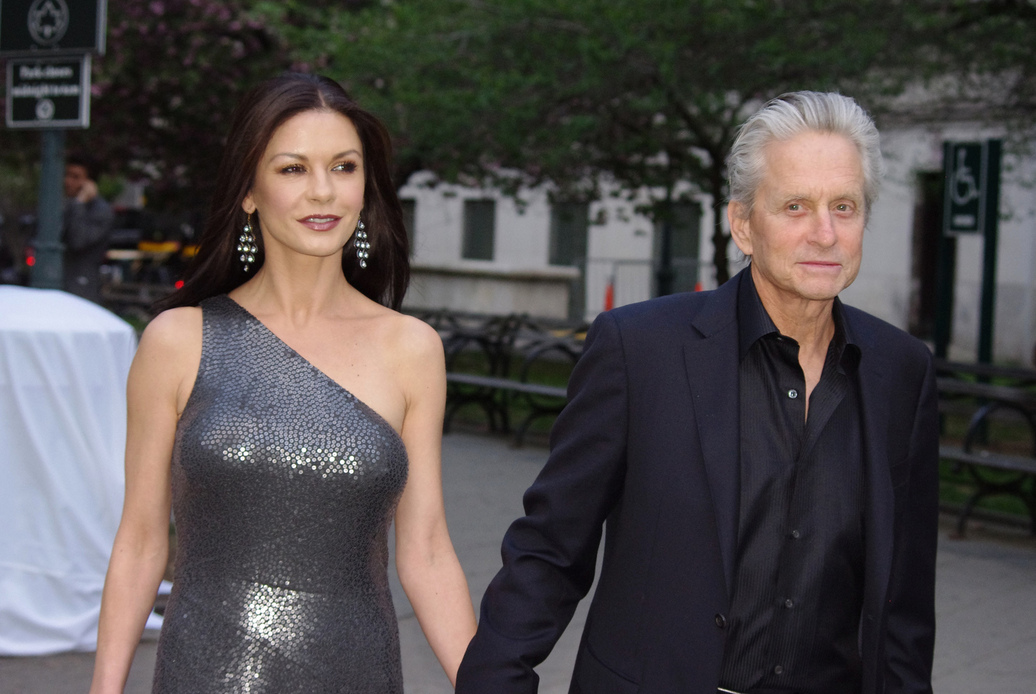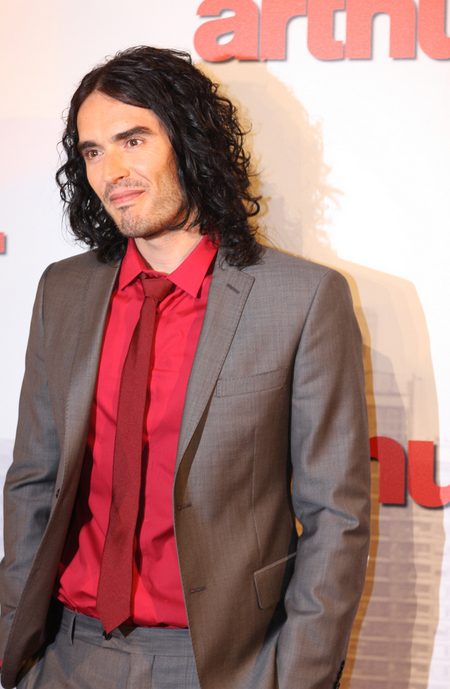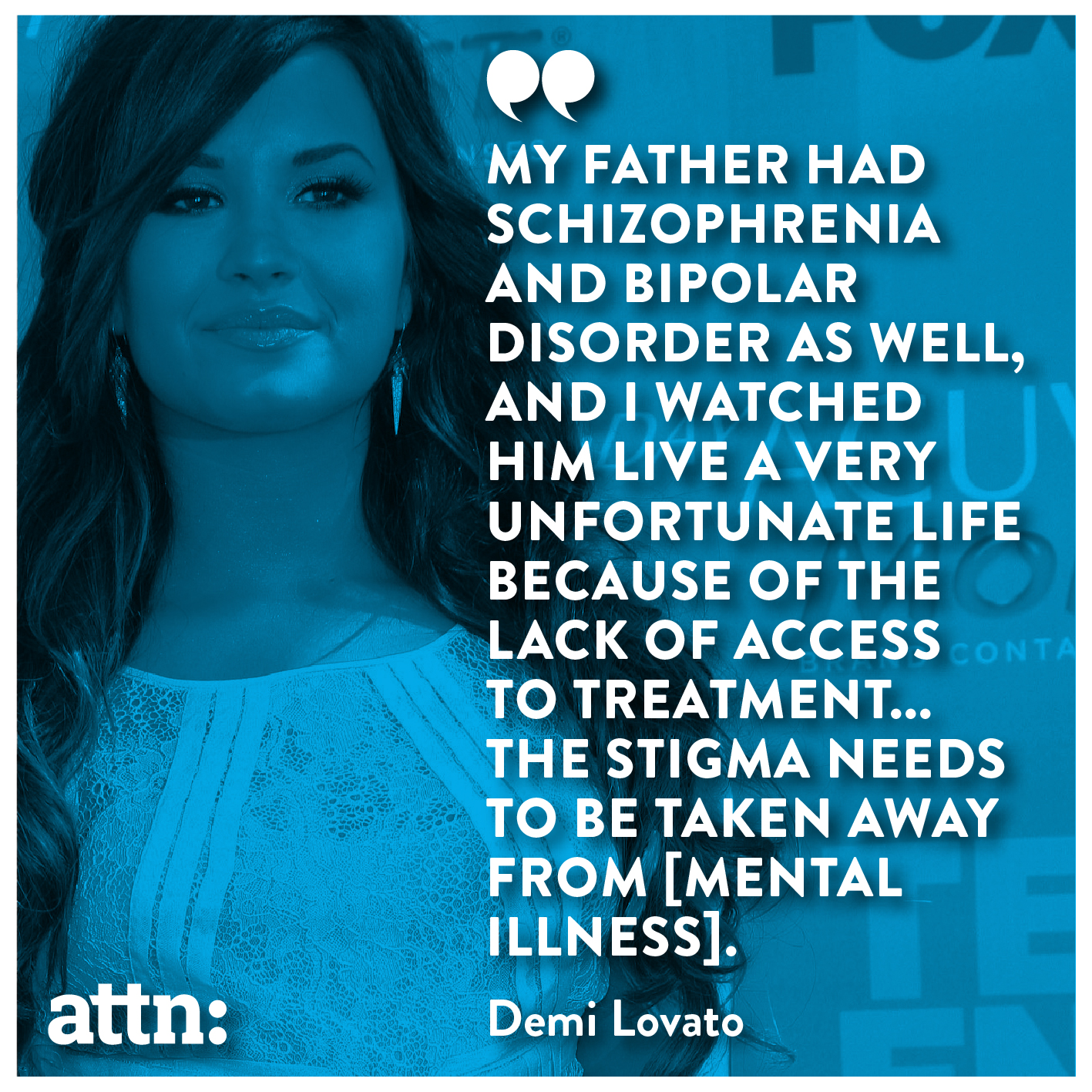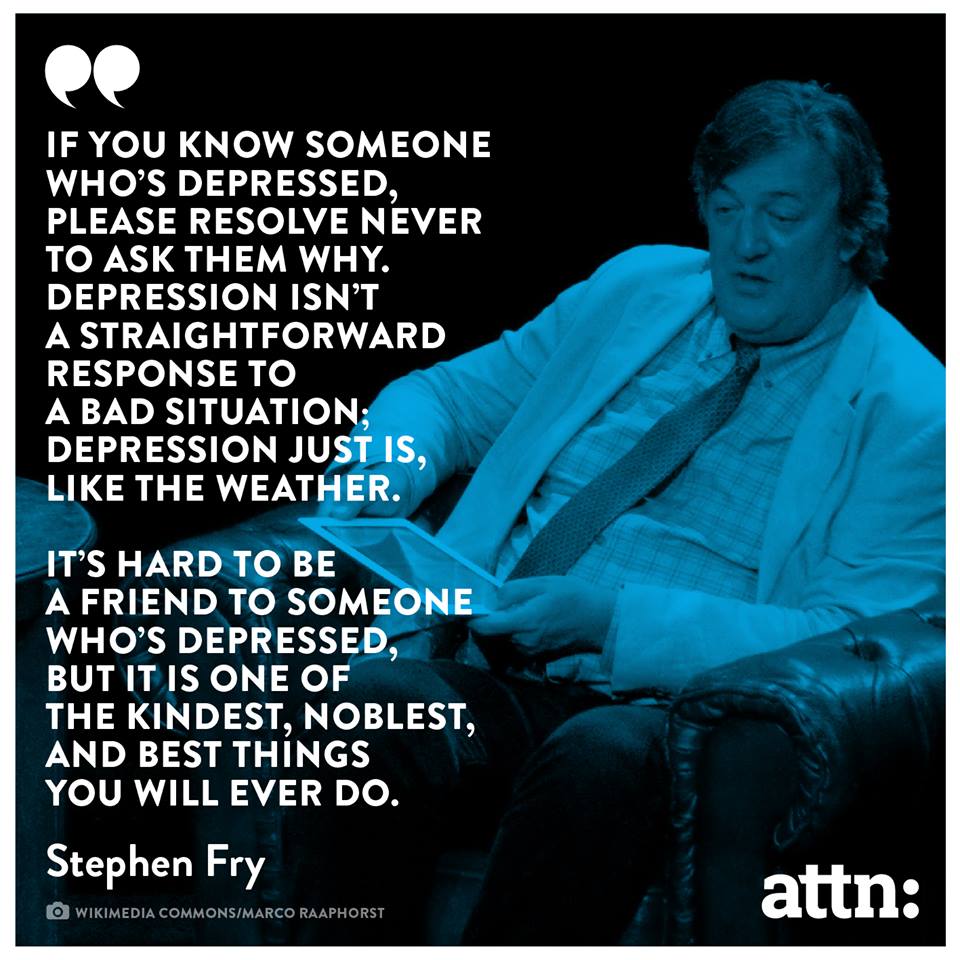4 Famous People Trying to End the Stigma Around Bipolar Disorder

By:
Bipolar disorder affects more than 5 million people across the United States. With societal stigma surrounding mental health issues and accompanying medication, it's important to spread awareness of different mental illnesses, especially bipolar disorder since it is often overlooked in discussions about mental health. The Mayo Clinic defines bipolar disorder as a condition that "causes extreme mood swings that include emotional highs (mania or hypomania) and lows (depression)."
In recent years, many famous figures have tried to fight the stigma of bipolar disorder by coming forward about their own struggles with the illness. In light of Mental Health Awareness Week, here are a few famous figures who have talked about living with bipolar disorder.
1. Catherine Zeta-Jones
 Flickr/David Shankbone - flickr.com
Flickr/David Shankbone - flickr.com
Four years ago, Catherine Zeta-Jones checked into a facility to deal with bipolar II disorder, a type of the disorder that has increased bouts of depression. At the time, her husband Michael Douglas was very sick with cancer. She told the Telegraph in 2013 that Douglas' condition severely impacted her mental health.
"[Bipolar disorder] is something I have been dealing with for a long time," she said. "When you get sideswiped like that [with Douglas’ illness] it’s an obvious trigger for your balance to be a little bit off – not sleeping, worry, stress. It’s a classic trigger."
She added that she initially didn't wish to speak about her condition.
"I never wanted to be as open about it as I was," she said. "I have a British stiff-upper-lip mentality – it wasn’t something I wanted to shout from the rooftops. But when it did come to light [in the media], I know I’m not the only person who suffers with it or has to deal with it on a day-to-day basis. So if I’ve helped anybody by discussing bipolar or depression, that’s great."
2. Demi Lovato
Singer Demi Lovato recently met with legislators in Washington, D.C., to increase awareness of mental health issues. Last year, she started the Lovato Treatment Scholarship Program following the death of her father, Patrick Lovato, who was bipolar-schizophrenic. Lovato has been open for years about her personal struggling with bipolar disorder and told People in a new interview that it's time to look at mental illness the same way we look at physical illness.
"I went through several years of pain and suffering, and I want to be able to help people and help try to prevent that suffering from happening," she said. "The problem with mental illness is people don't look at it as a physical illness. When you think about it, the brain is actually the most complex organ in your body. We need to treat it like a physical illness and take it seriously."
Several years ago, she left the Jonas Brothers tour early to seek treatment for eating disorders and cutting. While working through these issues, she learned that she had bipolar disorder.
"I never found out until I went into treatment that I was bipolar," Lovato told People in 2011, adding that her bipolar disorder made a lot of sense in retrospect. "There were times when I was so manic, I was writing seven songs in one night and I'd be up until 5:30 in the morning."
When actress Catherine Zeta-Jones went public about suffering from bipolar II disorder, Lovato tweeted out a message of support:
3. Stephen Fry
 Flickr/Garry Knight - flickr.com
Flickr/Garry Knight - flickr.com
Comedian Stephen Fry has talked a lot about dealing with depression and bipolar disorder. In 2013, he did a long interview with The Guardian about his recent suicide attempt and what it's like to experience the highs and lows of bipolar disorder.
"If unmedicated, there are times when I am so exuberant, so hyper, that I can go three or four nights without sleeping and I'm writing and I'm doing stuff and I'm so grandiose and so full of self-belief that it's almost impossible to deal with me," he said. "I can't stop speaking, I'm incredible, I go on shopping sprees. There are times when I'm doing QI and I'm going, 'Ha ha, yeah, yeah,' and inside I'm going 'I want to fucking die. I … want … to … fucking … die.'"
He also called himself a "victim" of his own moods.
"I am the victim of my own moods, more than most people are perhaps, in as much as I have a condition which requires me to take medication so that I don't get either too hyper or too depressed to the point of suicide," he said. "The whole point in my role [as president of the charity Mind], as I see it, is not to be shy... about the morbidity and genuine nature of the likelihood of death amongst people with certain mood disorders."
4. Russell Brand
 Flickr/Eva Rinaldi - flickr.com
Flickr/Eva Rinaldi - flickr.com
During adolescence, actor Russell Brand was treated for depression even though he displayed symptoms of bipolar and hyper-manic disorder as well. According to a Guardian piece from 2006, he started binge eating and vomiting at age 11.
"It was really unusual in boys, quite embarrassing," he told the Guardian. "But I found it euphoric."
In 2009, Brand further discussed his teenage battle with bulimia in an interview with TimeOut Sydney. When asked whether he'd ever been diagnosed with other mental illnesses, he said, "Yes, depression and manic depression and more latterly, bipolar. Attention deficit disorder, hyperactivity. It's difficult to know which of those diagnoses are correct because most of the time I was very young and on drugs."
He has also previously spoken about experiencing extreme moods, which are part of bipolar disorder.
"I've never had a sustained period of medication for mental illness when I've not been on other drugs as well," he said. "It's just not something that I particularly feel I need. I know that I have dramatically changing moods, and I know sometimes I feel really depressed, but I think that's just life. I don't think of it as, 'Ah, this is mental illness,' more as, 'Today, life makes me feel very sad.' I know I also get unnaturally high levels of energy and quickness of thought, but I'm able to utilize that."
If you think you may be suffering from bipolar disorder and have questions, you can call the National Alliance of Mental Illness (NAMI) helpline at (800) 950-6264.


 -
-